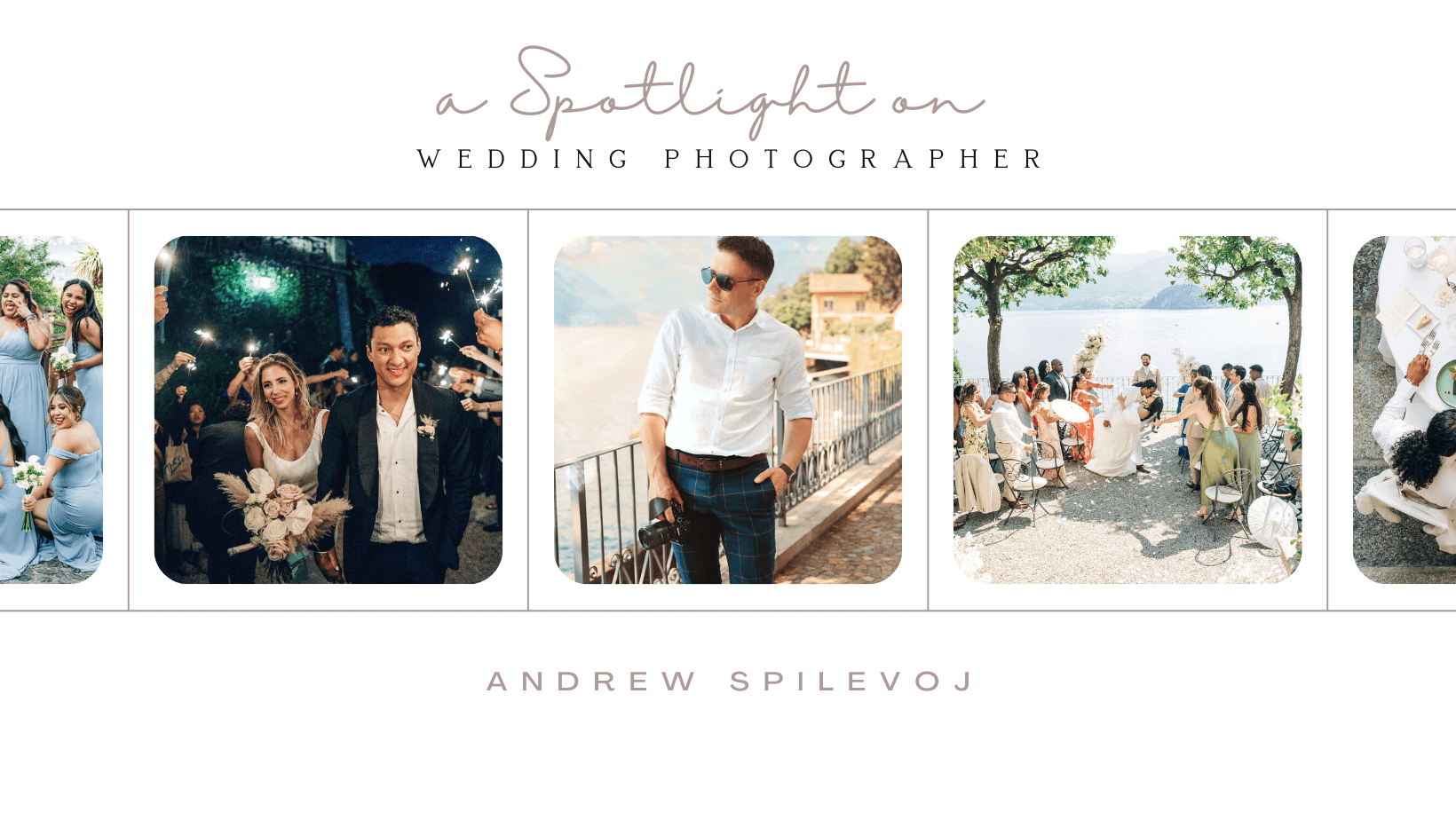Over the past six years, Andrew's work has been featured by film photographer bloggers in the US and Canada: Analog.cafe and Shoot Film Co. Additionally, his photos were included in his educational book on film photography and a travel book about Armenia. Andrew takes pride in the numerous happy couples who have returned to him with gratitude and positive reviews. To him, this indicates that his work is truly valued, bringing him a sense of happiness.
If you could photograph a wedding anywhere in the world, regardless of budget or logistics, where would it be and why?
I am a destination photographer, so traveling to different locations is okay for me. I have photographed weddings in Ireland, Poland, Italy, Luxembourg, Spain, Lithuania, Latvia... I hope I did not forget to mention any country in that list. However, one of my dreams is to be a photographer at a real Indian wedding in India. I am captivated by the colors and the vibrant atmosphere that India offers. I believe experiencing such an event would be truly interesting - I could say it is a dream for me.
Another dream destination is Villa Balbiano, situated by Lake Como. Though I've heard much about it, the stunning villa remains on my list of places to explore. I look forward to the day when I can capture beautiful photos of a couple in that picturesque setting too.
Weddings are full of surprises. Can you share the most unexpected or amusing moment you've encountered while shooting a wedding?
A few years ago, I had the privilege of working on a wedding where the bride and her entire family were from Iran, while the groom, along with his family and friends, hailed from the US. It was a Persian-style wedding, complete with all the beautiful traditions and rituals. The ceremony was truly enchanting. Right after the ceremony concluded - literally the moment after the kiss - rain began to fall. It felt like a blessed ceremony, and I couldn't help but marvel at how even the rain waited until we were done, marking the union of one more happy couple into a family.
How many weddings have you photographed, and how long have you been in the business?
I began my journey in 2011 in Ireland, working as a wedding videographer. However, I made the decision to relocate to a warmer climate and transition from video to photography. Deep down, I always felt that I was more of a photographer, but the challenge in Ireland, particularly with the frequent rain on the west coast where I lived, prompted the change. Moving my business to Italy was a significant catalyst for me to finally pursue what I've always loved the most. To date, I've had the privilege of capturing over 100 weddings, and I hope to continue adding to that number.
When the weather isn't on your side, do you have any secret tricks to create magical photos?
As one of my friends often remarks, 'You are a golden hour photographer!' This is my signature technique that I employ whenever possible. With a deep understanding of how light operates, I know its potential to create enchanting pastel colors, romantic sun flares, and sun glares. I consistently advise my clients to utilize this magical time for a romantic photo shoot, and the best part is - it only takes about 15 minutes!
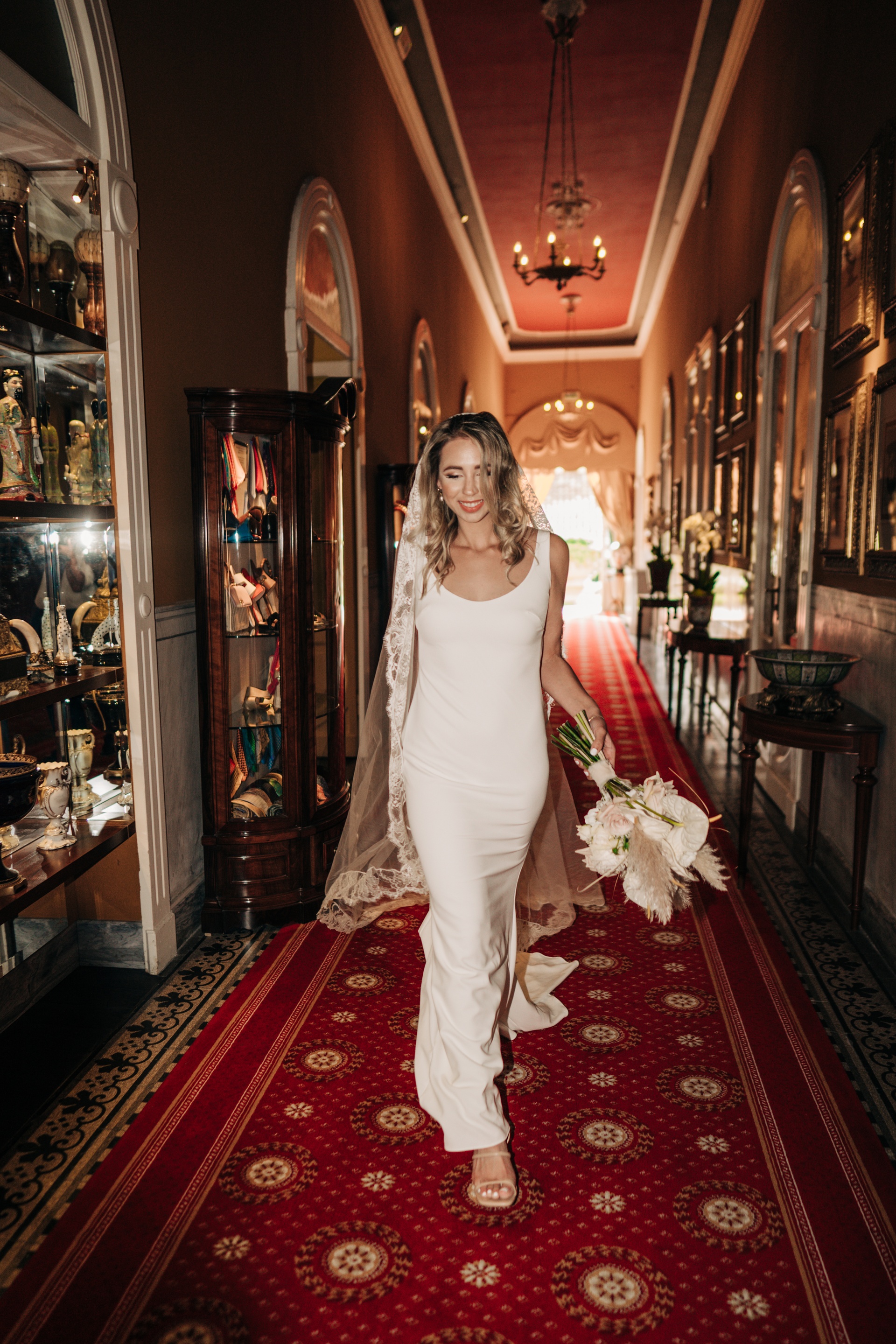
Do you have a backup plan for equipment failure? Have you ever needed such an emergency plan B?
I believe every photographer needs a plan B. In my case, I always carry two cameras at weddings, each equipped with two SD cards. Despite being in the business for over 10 years, I've never encountered equipment failure, and while I hope it stays that way, having a plan B is a constant in my approach.
I know that you travel a lot as part of your job. Does the travel ever get too much or do you still enjoy flying around the world to capture special weddings and events?
I fly approximately 20-25 times per year, and I absolutely love it! Saying 'yes' to wedding bookings in other countries brings me immense joy. I cherish the opportunity to combine my passion for photography with my love for traveling, and I'm thrilled that it's an integral part of my job!
How do you prefer to work with your couples? Is it helpful for them to provide a shot list, or do you prefer to work more spontaneously?
I have no objections to shot lists. Honestly, I rarely come across one that surprises me, as most include shots I typically capture without a list. However, I see it as a helpful tool for the couple, a sort of remedy. I'm always pleased to receive one and check if our visions align. In 99% of cases, they do, and it's only on rare occasions that I discover something new in the list. I appreciate it; it's better to communicate your expectations with your photographer beforehand than to regret missing a shot you wanted after the wedding day.
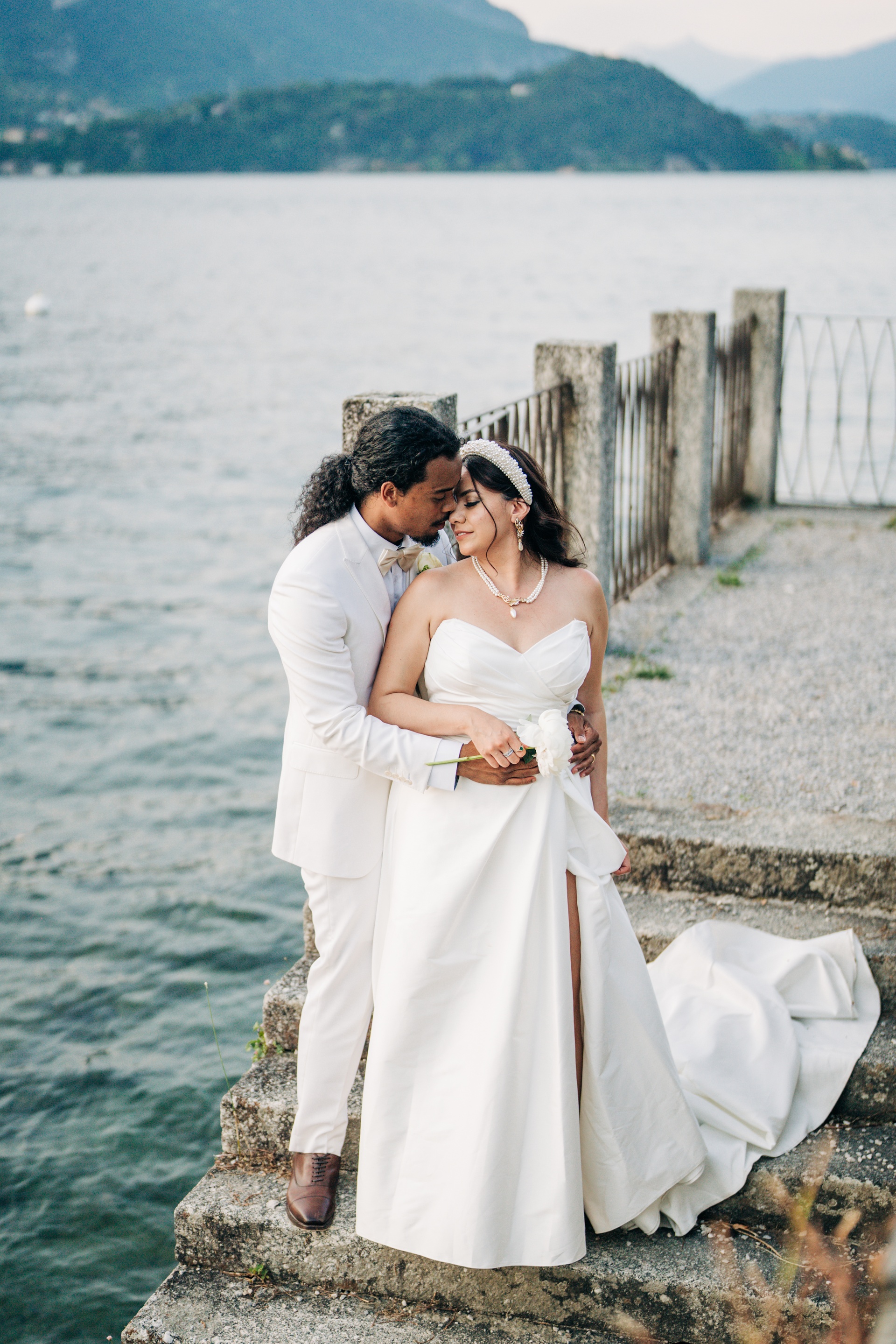
How do you make sure that the photography process is enjoyable and stress-free for the couple?
I've found a great solution to bridge the connection with my couples: we typically meet a day before the wedding on location. During this meeting, we spend about an hour discussing their wedding day plans, going over the schedule of events, and to cap it off, we embark on a short pre-wedding photo shoot. This not only allows me to learn more about the couple, but it also gives them a better idea of what to expect from me on the wedding day.
The best part is that I email them the edited shots on the very same evening, allowing the couple to see the results and share them with their friends. The following day, on the wedding day itself, they feel much more relaxed and see me as a friend rather than a stranger-photographer who has just arrived. This approach has consistently proven effective for me!
Can you remember your very first wedding you captured? Did everything go to plan?
My first wedding has an interesting prelude that occurred before the ceremony itself. In 2011, I filmed a commercial for an Irish company in Galway, and as filming was still uncommon at the time, I started receiving more requests. My focus was on music videos and commercial work, and weddings never crossed my mind. Then, I encountered an Irish girl, the daughter of a business owner, who approached me to film her wedding. Initially, I thought she was joking, as I had no experience with wedding videography. Despite my reservations, she convinced me that I could handle the responsibility.
I was apprehensive, worrying about potential equipment failures and other uncertainties. She had the means to book a professional filming company from Dublin, but she insisted on me. Though unprepared, I took on the challenge. While editing the wedding video, I realized how much I enjoyed the process. That experience marked my first step into the wedding business, a journey that I continue to relish!
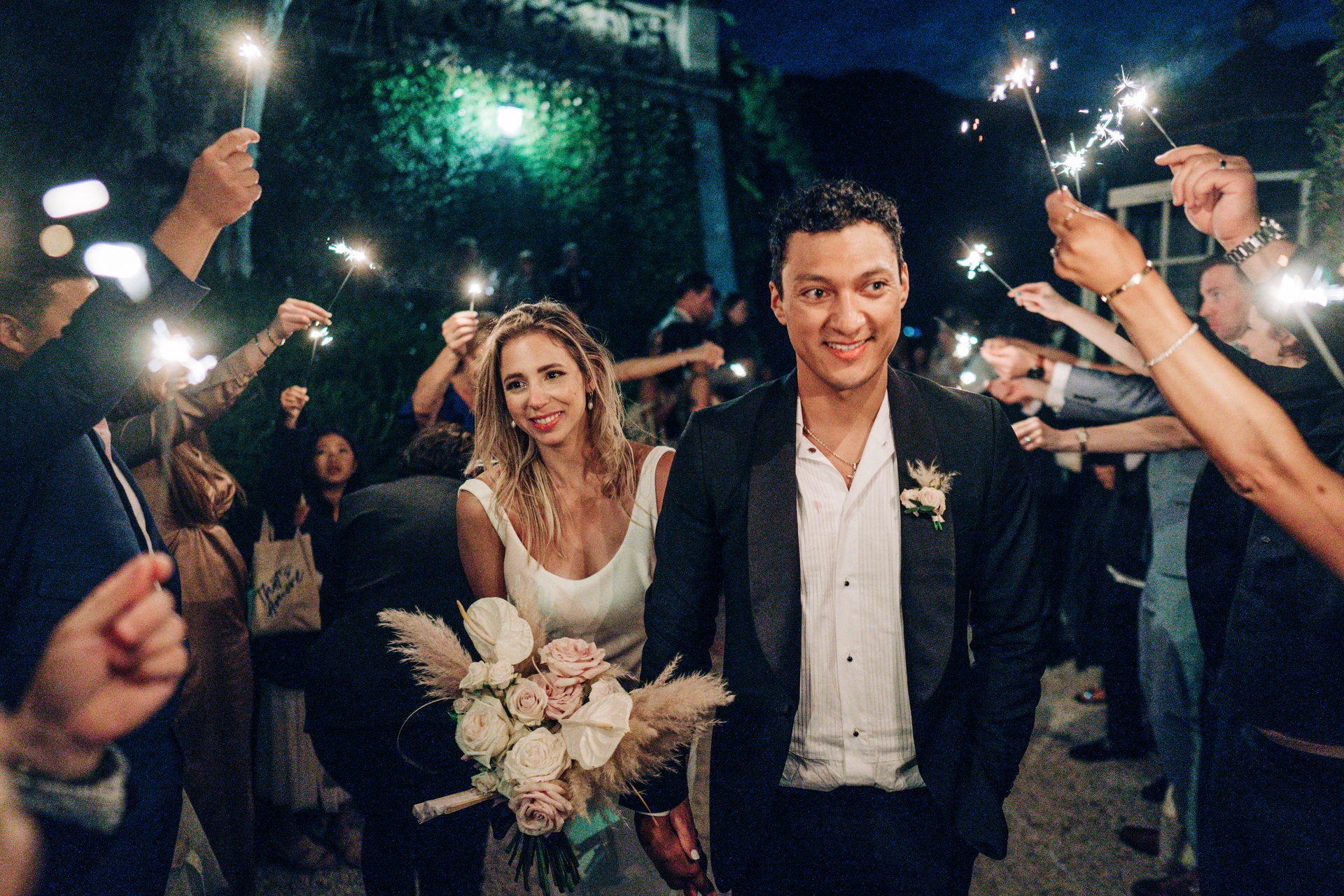
If you could hand down one piece of advice to a younger, inexperienced you who was just starting out in his career as a wedding photographer. What advice would you give yourself?
'Gear matters, get the 50mm F1.2 lens!' Interestingly, I experimented with photography when I was much younger, but due to using the cheapest equipment, I didn't find joy in the process or the results. I quit at that time. Only when I started working with professional gear did I truly understand how amazing photography can be.
Have you ever been in a situation where you have been asked to capture photos in hazardous or risky situations? What happened?
We are usually very cautious on the wedding day, especially when it comes to the couple who understandably want to ensure the safety of their photos and the photographer. While I enjoy experimenting and seeking interesting shots, we generally handle our expensive gear with care.
One memorable instance involved capturing the cake-cutting moment with a drone. The bride desired a top view, so I flew the drone quite low, right above the heads of the guests surrounding the cake. We aimed to capture the shot when everyone paused to appreciate the cake, creating a visually dynamic scene with many hands. It was a super risky move, as the drone was positioned directly above the cake. Any failure could have resulted in disaster! Thankfully, everything went smoothly, but that moment had me on edge.
I prioritize the safety of both the couple and the guests over taking unnecessary risks that could potentially damage gear or, worse, harm anyone involved. However, there are moments when we decide to take calculated risks, ensuring that the risk level is minimal and manageable.
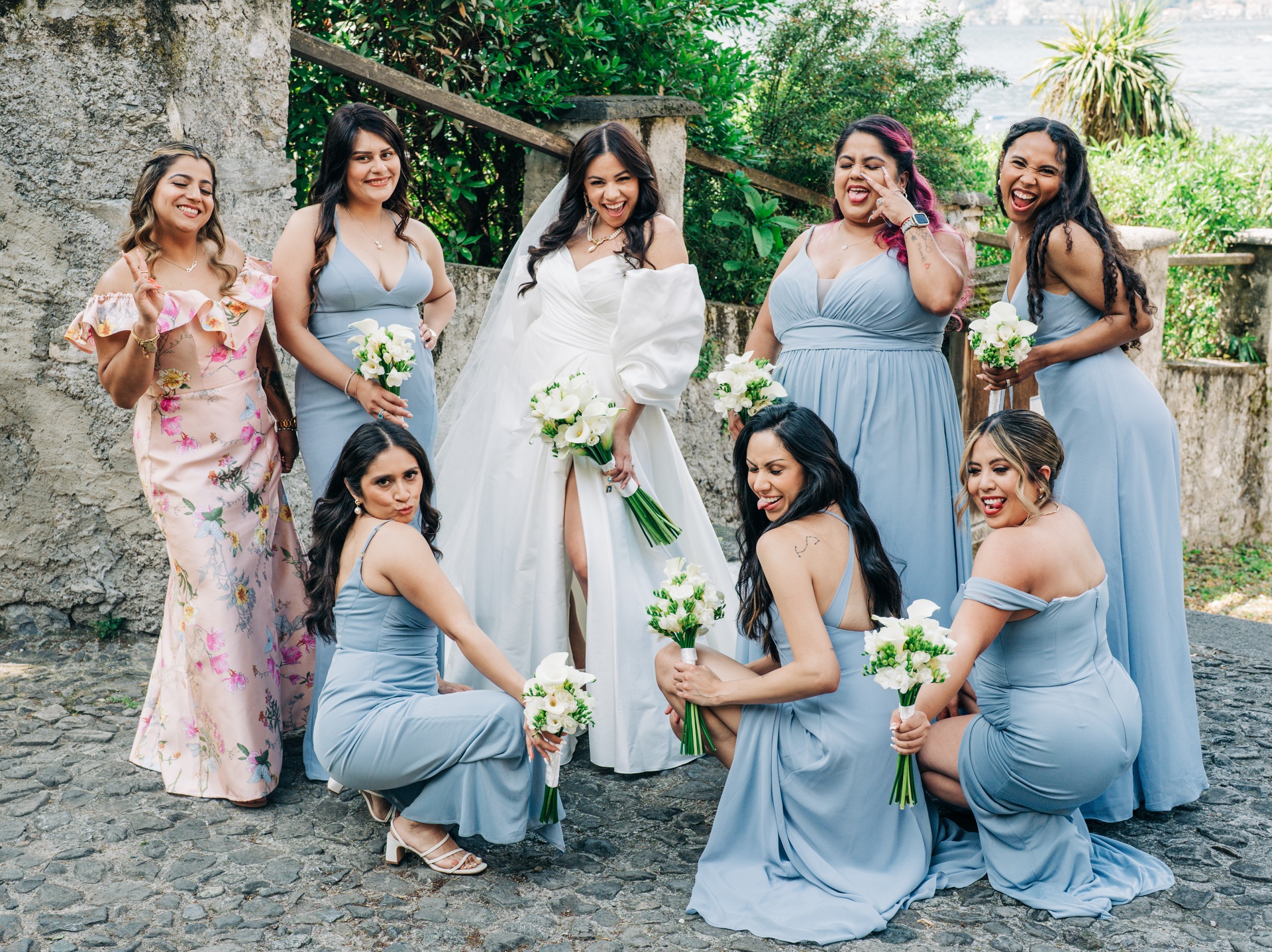
Photographers find inspiration in unexpected places. Can you share a surprising source of inspiration that has influenced your work?
I have a deep affection for old towns, charming narrow streets, quaint shops, and ice cream cafes - in essence, I am in love with Italy. Despite my frequent travels, returning to the small streets of Varenna and the high stairs of Bellagio always brings me immense joy. These places serve as my best inspiration.
Every photographer encounters challenges. Can you recall a time when something went wrong during a shoot, but it turned into a happy accident and resulted in a fantastic photo?
We once had a wedding that was completely disrupted by rain. Given the frequent rain in the Baltic countries in July, we knew there was a high chance it would persist. Unfortunately, it did, leading the couple to cancel several planned events like the champagne tower on the grass and the fire show. The most challenging part for me was that we couldn't go outside for the planned photos.
Fortunately, we were at the bride's house, and on the spot, we came up with the idea to have the couple put on boots, grab umbrellas, and venture into the park to enjoy the rain. The photos turned out to be fun, the time spent in the park was enjoyable, and the couple felt much more at ease. Despite the rain and the adjustments, we captured enough amazing shots for them to cherish and remember their special day.
How has your photography style evolved over the years? Are there any trends you embraced or abandoned along the way?
When I first started, I spent a lot of time experimenting, searching for a style that truly resonated with me. For the initial two years, I tried different presets, poses, and ideas, but nothing felt quite right. While clients were happy, I was on a quest to discover a style that I could truly adore. That's when I encountered 'fine art,' inspired by Jose Villa, which led me to delve into film photography. Within a couple of years, I became proficient in analog photography, even writing my own book and giving lectures on the topic. Fine art became my primary style, extending to my family photos. While it has evolved with trends, if I were to hit a reset, I would go back to those amazing pastel looks that only Kodak Portra 800 can provide.
Technology is constantly changing the landscape of photography. What's your take on the latest photography gadgets or apps? Any favorites or ones you find overrated?
I used to be the one who always sought out the newest and most advanced technologies for work. However, with years of experience, I've come to realize that the model of the camera in your hands doesn't make the difference; it's your personal vision of the scene, light, and subject, along with how you use the light and location, and communicate with people to make them feel at ease. The camera is just a device. Nevertheless, the lens remains crucial for me.
After years of constantly updating my camera bag, I found the golden balance for me. Interestingly, when one of my cameras wore out, and I decided to find a replacement, I couldn't find anything released in the recent two years that I deemed more valuable than my current model, purchased four years ago. Technology may change, but the best isn't always the one that is yet to come. Many cameras and lenses that already exist are just perfect; you need to discover what works best for you and start using it.
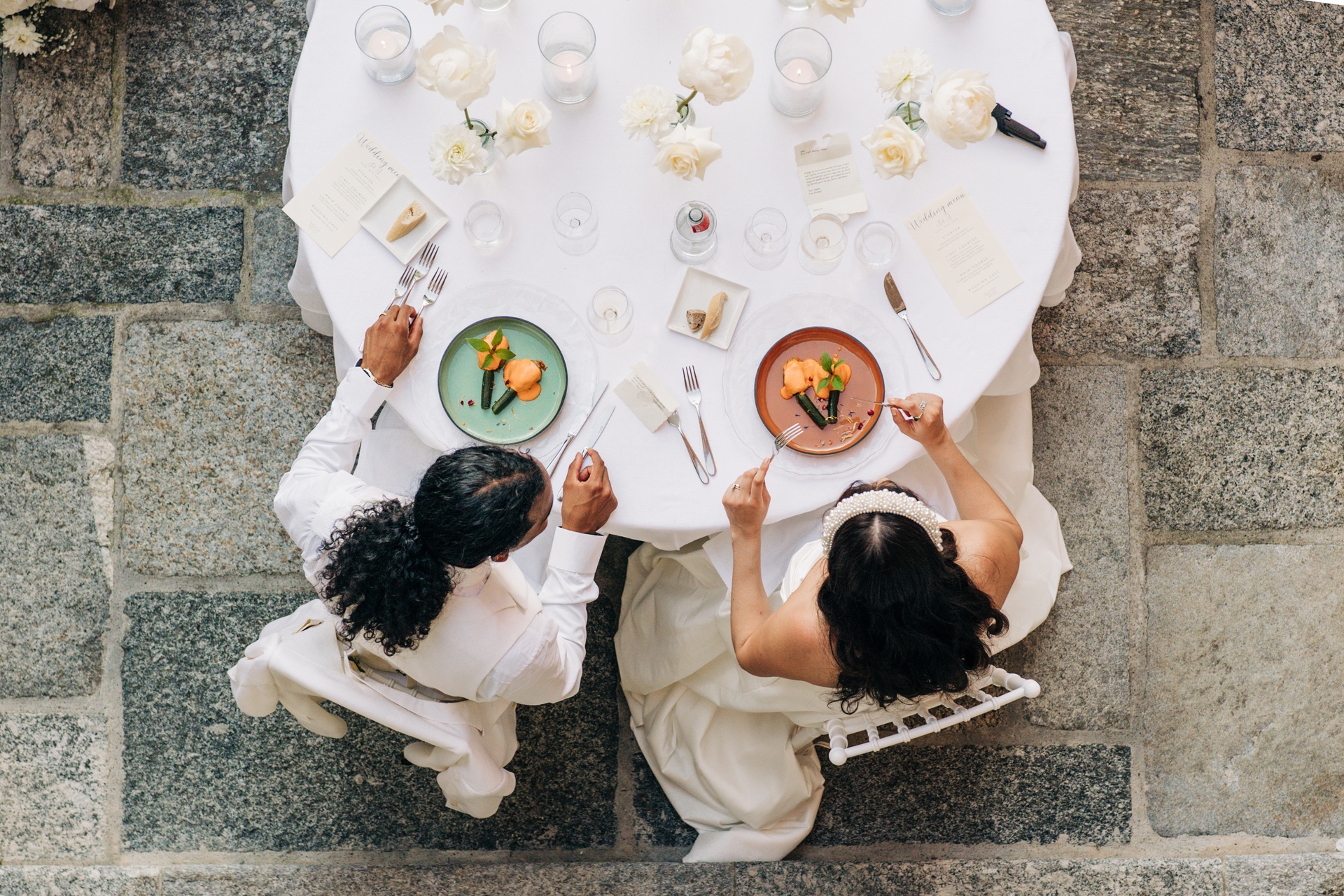
How do you stay creatively inspired and avoid creative burnout? Are there any practices or habits you've developed to keep your work fresh and innovative?
Burning out is a serious condition, often underestimated. Once it happens, it can be challenging to reverse, even if one desires to change. To prevent this, I consciously limit myself when I feel myself getting tired. Traveling and reading books have proven to be effective remedies. Additionally, I've taken up playing the piano as a second hobby; it allows me to relax and disconnect from the world for a few hours each day. Having a secondary passion is a valuable solution for anyone feeling on the verge of developing a dislike for what they do.
